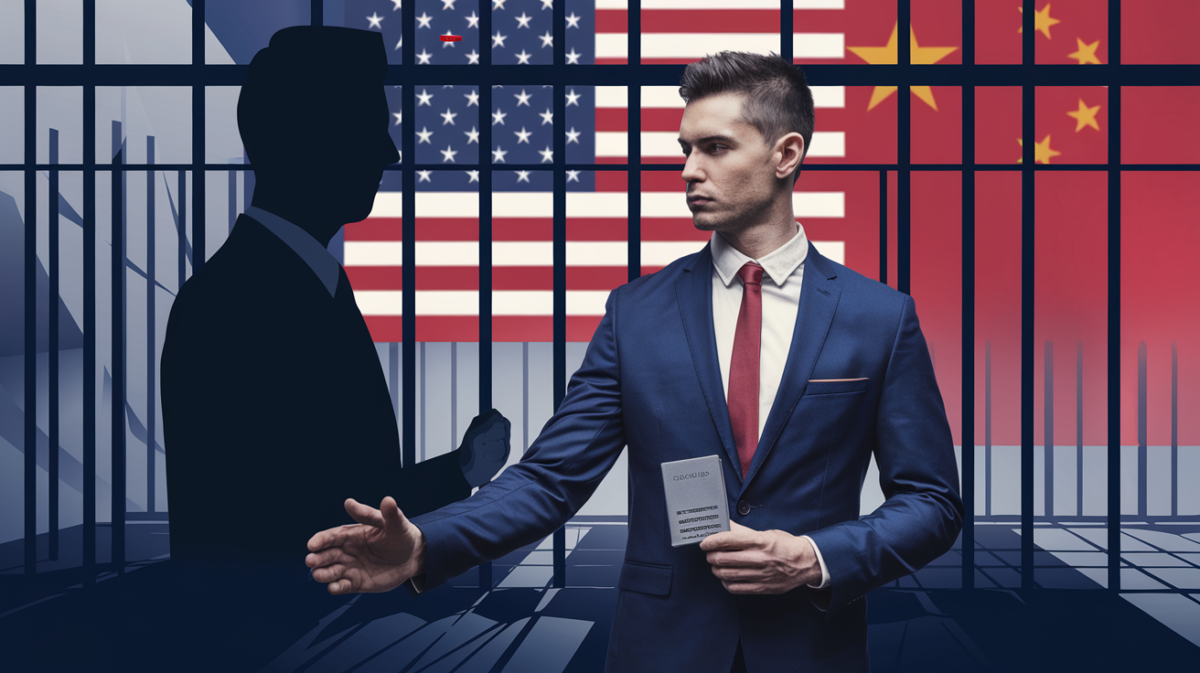Incident Highlights Risks for Multinational Firms in China
A senior Wells Fargo banker, Chenyue Mao, has been blocked from leaving China after arriving for a routine business trip, according to reports. The incident has sparked concerns among multinational companies about the growing risks of operating in China, particularly regarding employee freedom and legal uncertainties.
Who Is Chenyue Mao?
Chenyue Mao, a managing director at Wells Fargo, specializes in international factoring and has been with the bank for over a decade. Born in Shanghai and now based in Atlanta, Mao’s case underscores the challenges faced by professionals with ties to both the U.S. and China.
What Happened?
Mao traveled to China for a work-related visit but was unexpectedly barred from leaving the country. The reasons for the exit ban remain unclear, as Chinese authorities have not provided an official explanation. Following the incident, Wells Fargo suspended all employee travel to China, citing concerns over employee safety and legal risks.
Understanding China’s Exit Bans
China has increasingly used exit bans as a tool in civil disputes, regulatory investigations, and criminal cases. These bans are often imposed without prior notice, leaving individuals unaware until they attempt to depart. Key points about China’s exit bans include:
- Lack of Transparency: Exit bans are rarely announced publicly, and affected individuals may not be informed of the reasons.
- Broad Application: Both Chinese and foreign nationals can be subject to these restrictions.
- Legal Ambiguity: The process for challenging or lifting an exit ban is opaque and inconsistent.
Implications for Multinational Companies
The incident involving Mao has raised alarms for businesses with operations in China. Here’s how it could impact multinational firms:
- Employee Safety: Companies may reassess sending employees to China due to unpredictable legal risks.
- Business Operations: Travel restrictions could disrupt meetings, negotiations, and other critical activities.
- Geopolitical Tensions: The situation adds to existing strains between the U.S. and China, complicating diplomatic and economic relations.
Comparing Exit Ban Policies: China vs. Other Countries
| Country | Exit Ban Policies | Transparency |
|---|---|---|
| China | Used in civil, regulatory, and criminal cases; no prior notice. | Low |
| United States | Rarely used; typically tied to legal proceedings or national security. | High |
| European Union | Exit bans are exceptional and require judicial oversight. | High |
Broader Impact on U.S.-China Relations
The Mao case is the latest in a series of incidents that have strained U.S.-China relations. From trade disputes to espionage allegations, the relationship between the two superpowers remains fraught with tension. This incident could further erode trust and complicate efforts to stabilize economic ties.
What’s Next for Wells Fargo and Other Firms?
Wells Fargo’s decision to suspend travel to China reflects a cautious approach, but other companies may follow suit. Key considerations for businesses include:
- Risk Assessment: Firms may need to evaluate the legal and operational risks of sending employees to China.
- Policy Updates: Companies could revise travel policies to include contingency plans for exit bans.
- Diplomatic Engagement: The U.S. government may intervene to seek clarity on Mao’s case and similar incidents.
Conclusion
The detention of Chenyue Mao highlights the unpredictable nature of doing business in China. As exit bans become more common, multinational companies must weigh the benefits of operating in China against the potential risks to their employees and operations. The incident also underscores the fragile state of U.S.-China relations, with implications that extend far beyond the banking sector.







